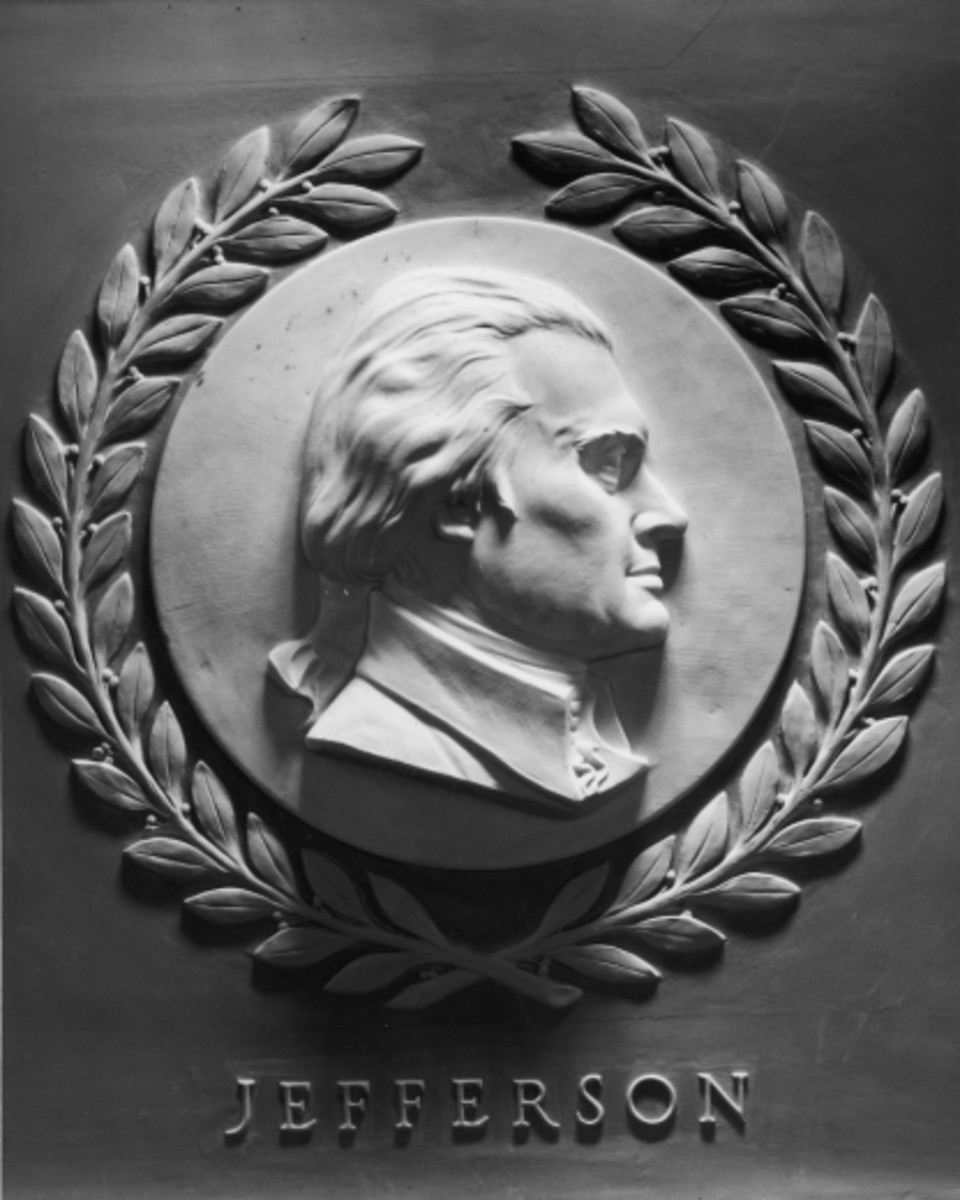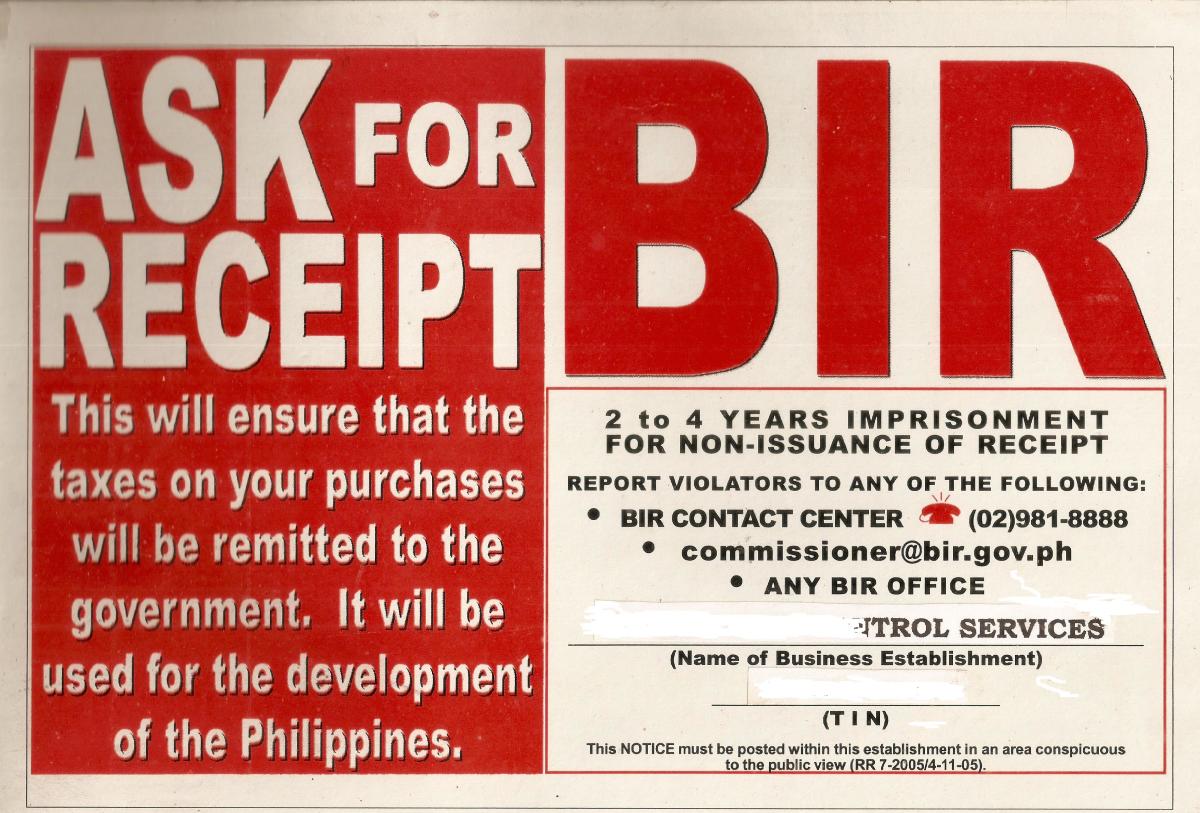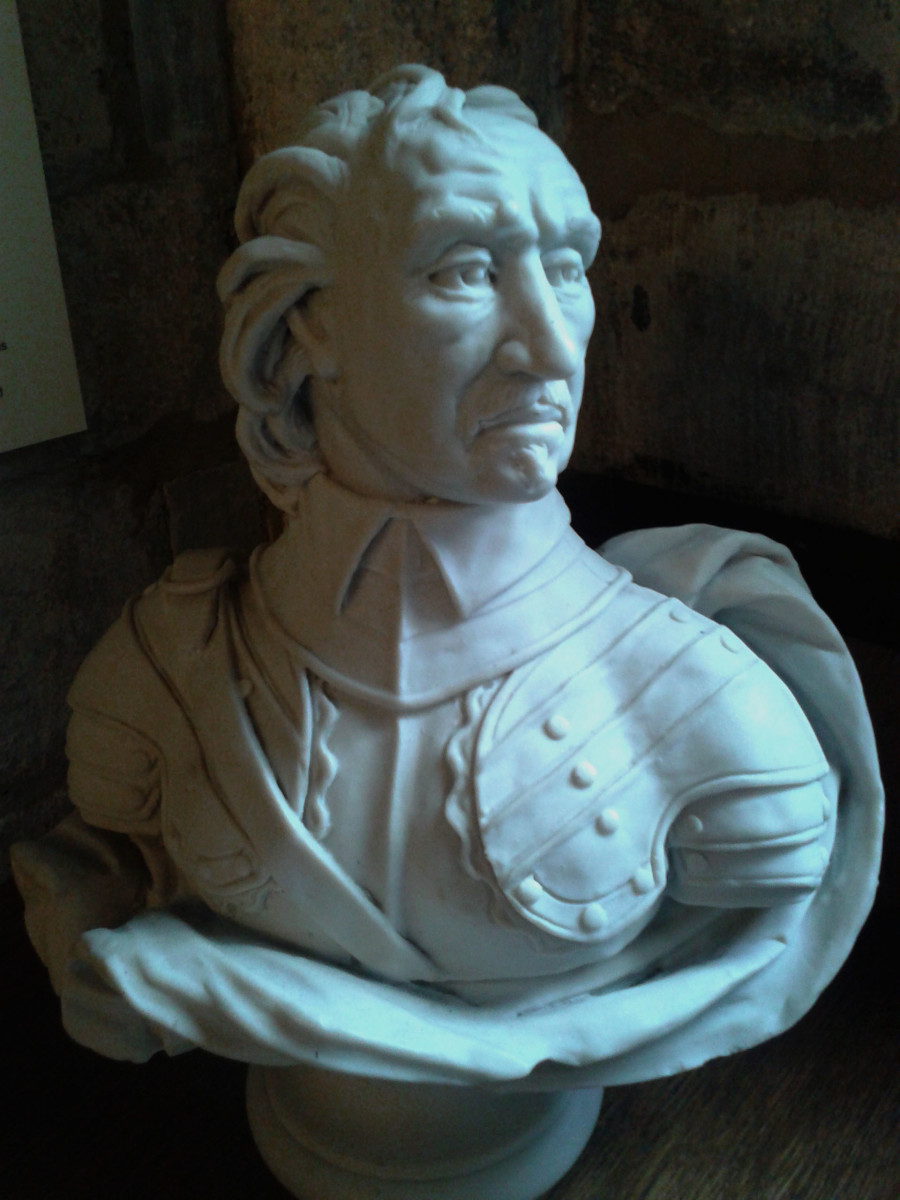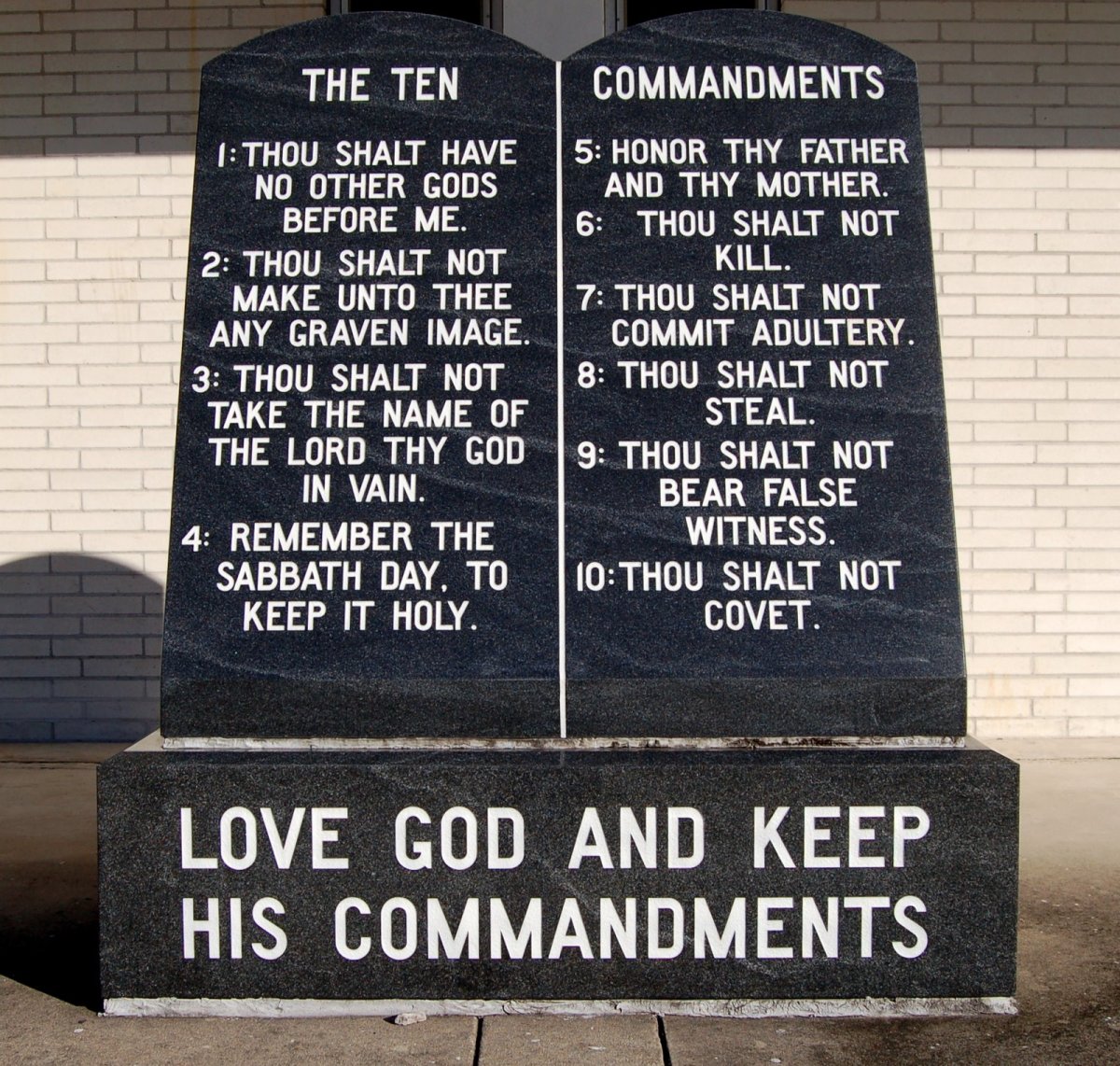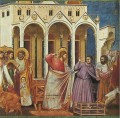The Making of a Theocratic Society (Church State)
"Where in the Constitution is the separation of church and state?" Christine O’Donnell, October 19, 2010[1]
The Making of a Theocratic Society (Church State)©
Mark Monroe, November 15, 2010
The quote by Christine O’Donnell, a 2010 candidate for U.S. Senate from the state of Delaware, is the latest rendition of an argument that has been circulating around the United States since the creation of the Constitution in 1787. Even before that, it was a problem for the Continental Congress in September of 1774 as demonstrate in a letter from John Adams to Abigail Adams. “When the Congress first met, Mr. Cushing[2] made a Motion, that it should be opened with Prayer. It was opposed by Mr. Jay[3] of N. York and Mr. Rutledge[4] of South Carolina, because we were so divided in religious Sentiments, some Episcopalians, some Quakers, some Aanabaptists, some Presbyterians and some Congregationalists, so that We could not join in the same Act of Worship.[5]”
Over the years the arguments surrounding the relationship between church and state has become very contentious. Some believe that the two should never be separated; that religion is the key to politics. Ms. O’Donnell’s counterpart running for the open Delaware Congressional seat had this to say about the subject, “that exact phrase is not in Jefferson’s letter to the Danbury Baptists. He was reassuring them the federal government wouldn’t trample on their religion. The exact phrase ’separation of Church and State’ came out of Adolph Hitler’s mouth. That’s where it comes from. So the next time your liberal friends talk about the separation of Church and State, ask them why they’re Nazis.[6]” As farfetched as Glen Urquhart’s argument is, Delaware is not the only state where this debate is raging and just because these two failed in their attempt for a national office does not mean that this discussion is over. Ultra conservative groups want to tear down on of the basic Constitutional doctrine of this country with this simplistic grammatical argument.
Granted the Constitution does not have the words, “separation of church and state.” The First Amendment states:
“Congress shall make no law respecting an establishment of religion, or prohibiting the free exercise thereof; or abridging the freedom of speech, or of the press; or the right of the people peaceably to assemble, and to petition the Government for a redress of grievances.”
For the purposes of this discussion the key phrase we are concerned with is “law respecting an establishment of religion.” What did the framers of the Constitution mean by this statement? From a historical perspective they were trying to prevent the existence of an official church of the state. Britain had the Church of England, the Netherlands had Presbyterian and then there was the power that the Roman Catholic Church had of most of the world.
While the exact phrase does not exist in the Constitution, the idea of separation of church and state is considered to be Constitutional doctrine. Clarification of the intent of the First Amendment can be found in Thomas Jefferson’s letter to the Danbury Connecticut Baptists Association which addressed the concerns that certain religious groups would gain too much power in the government. The wording was an attempt to limit the power or influence any one religious group could hold over the government.
"Believing... that religion is a matter which lies solely between man and his God, that he owes account to none other for his faith or his worship, that the legitimate powers of government reach actions only, and not opinions, I contemplate with sovereign reverence that act of the whole American people which declared that their Legislature should 'make no law respecting an establishment of religion, or prohibiting the free exercise thereof,' thus building a wall of separation between Church and State." --Thomas Jefferson to Danbury Baptists, 1802. ME 16:281[7]
The letter Jefferson wrote was inline with the concerns that the framers of the Constitution had with the power that certain religious groups had over governments in Europe. It was so important that it was the first topic they addressed in the document. However, in 1802 this was not a new issue, about 113 years before Jefferson’s infamous letter; John Locke was addressing the same issue. “Since you are pleased to inquire what are my thoughts about the mutual toleration of Christians in their different professions of religion, I must needs answer you freely that I esteem that toleration to be the chief characteristic mark of the true Church.”[8] This is the opening line to Locke’s, A Letter Concerning Toleration, which was written in 1689. Locke’s concern was about idea of a separation of Church and State. (a couple of centuries before Hitler was born) In this essay he points out the roles of the government (civil magistrate) and what the role of the church is.
“It is the duty of the civil magistrate, by the impartial execution of equal laws, to secure unto all the people in general and to every one of his subjects in particular the just possession of these things belonging to this life. If anyone presume to violate the laws of public justice and equity, established for the preservation of those things, his presumption is to be checked by the fear of punishment, consisting of the deprivation or diminution of those civil interests, or goods, which otherwise he might and ought to enjoy. But seeing no man does willingly suffer himself to be punished by the deprivation of any part of his goods, and much less of his liberty or life, therefore, is the magistrate armed with the force and strength of all his subjects, in order to the punishment of those that violate any other man's rights.”
“Now that the whole jurisdiction of the magistrate reaches only to these civil concernments, and that all civil power, right and dominion, is bounded and confined to the only care of promoting these things; and that it neither can nor ought in any manner to be extended to the salvation of souls.[9]”
Locke was writing at a time in Europe when the different sects of Christianity had control or could heavily influence the different governments. This power has lead to abuses against people with opposing religious views then the sect in control of the society. Abuses came in the form of the witch trail, the Spanish Inquisition (which lasted from 1478 to 1834) and other events that lead to government approved torture and murder of non-believers.
The U. S. Supreme Court first referenced Jefferson’s "wall of separation" phrase in the 1878 case of Reynolds v. United States "Coming as this does from an acknowledged leader of the advocates of the measure, it may be accepted almost as an authoritative declaration of the scope and effect of the amendment thus secured. Congress was deprived of all legislative power over mere opinion, but was left free to reach actions which were in violation of social duties or subversive of good order.[10]" What the Constitutional framers were trying to avoid was the creation of a Theocratic society. A Theocratic society is a totalitarianism society which subordinates the individual to the interests of the collective. Specifically a Theocratic government “is an expression of the preferred deity, with leaders often claiming to represent the deity’s interests on earth. …. Strict social regulation and gender regimentation typically ensue.[11]”
No one should be surprised to hear that Christianity plays a role in the U.S. Government. Signs of the Christian religion are everywhere, from “In God We Trust” on our money to the Bible that is used to swear in the President. There will not be a total divorce between the two, because religion plays such an intimate role in personal identity. Evan in the U.S. Senate today there is the blurring of the line with it’s Chaplin’s office, which on its website it states that, “Throughout the years, the United States Senate has honored the historic separation of Church and State, but not the separation of God and State. The first Senate, meeting in New York City on April 25, 1789, elected the Right Reverend Samuel Provost, the Episcopal Bishop of New York, as its first Chaplain. During the past two hundred and seven years, all sessions of the Senate have been opened with prayer, strongly affirming the Senate's faith in God as Sovereign Lord of our Nation.[12]” All these examples can be classified as peripheral interactions and they were not the concern of the founders.
With such an abundance of interaction between the government and Christianity, why would people such as O’Donnell want more? One answer is to exercise of greater power and control over people. For the sake of discussion let us speculate what would happen if Christianity would become the official “Church” of the U. S. Two questions come to mind. What would happen to the people who did not believe in the Christian God? Secondly, which sect of Christianity would become the dominate sect? According to the Amazing Grace Baptist Church they represent the true believers and they have provided a list of items that are worthy of burning include:
“We are burning Satan's bibles like the NIV, RSV, NKJV, TLB, NASB, ESV, NEV, NRSV, ASV, NWT, Good News for Modern Man, The Evidence Bible, The Message Bible, The Green Bible, and ect. These are perversions of God's Word the King James Bible.
We will also be burning Satan's music such as country , rap , rock , pop, heavy metal, western, soft and easy, southern gospel , contemporary Christian , jazz, soul, oldies but goldies, etc.
We will also be burning Satan's popular books written by heretics like Westcott & Hort , Bruce Metzger, Billy Graham , Rick Warren , Bill Hybels , John McArthur, James Dobson , Charles Swindoll , John Piper , Chuck Colson , Tony Evans, Oral Roberts, Jimmy Swagart , Mark Driskol, Franklin Graham , Bill Bright, Tim Lahaye, Paula White , T.D. Jakes, Benny Hinn , Joyce Myers , Brian McLaren , James White, Robert Schuller, Mother Teresa, The Pope , Rob Bell, Erwin McManus , Donald Miller, Shane Claiborne, Brennan Manning, William Young, Will Graham , and many more.[13]”
If the leaders of the Amazing Grace Baptist Church had their way, any deviation from their belief system would not be permitted. I will leave with the following thought, just because the words, “separation of church and state”, does not exist in the constitution does not mean that the intention of the framers was to have a theocratic society, in fact the phrase, “Congress shall make no law respecting an establishment of religion” clearly demonstrates their intent to avoid that type of situation.
Footnote
- Christine O'Donnell Questions Separation Of Church & State. http://www.huffingtonpost.com/2010/10/19/christine-odonnell-church-and-state_n_767910.html . Accessed November 9, 2010
- Thomas Cushing, Massachusetts
- John Jay Supreme Court Chief Justice 1789-1795
- John Rutledge Supreme Court justice 1790
- http://www.masshist.org/digitaladams/aea/cfm/doc.cfm?id=L17740916ja. Accessed November 9, 2010
- Tea Party's Glen Urquhart: Hitler Invented Church/State Separation. http://www.opposingviews.com/i/tea-party-s-glen-urquhart-hitler-invented-church-state-separation. Accessed November 9, 2010
- http://etext.virginia.edu/jefferson/quotations/jeff1650.htm
- Locke, John. A Letter Concerning Toleration. Translated by William Popple. 1689. http://www.constitution.org/jl/tolerati.htm. Accessed November 9, 2010
- IBID
- Reynolds v. United States. http://www.law.umkc.edu/faculty/projects/ftrials/conlaw/reynoldsvus.html. Accessed November 9, 2010
- Daniels, D., Lee H. Radebaugh, and Daniel Sullivan. International Business. Pearson Learning Solutions. 2011, 2009, 2007. Page 101
- Chaplin’s Office. http://www.senate.gov/reference/office/chaplain.htm. Accessed November 9, 2010
- http://www.amazinggracebaptistchurchkjv.com/Download99.html. Accessed November 9, 2010
© November 16, 2010 All Rights Reserved


